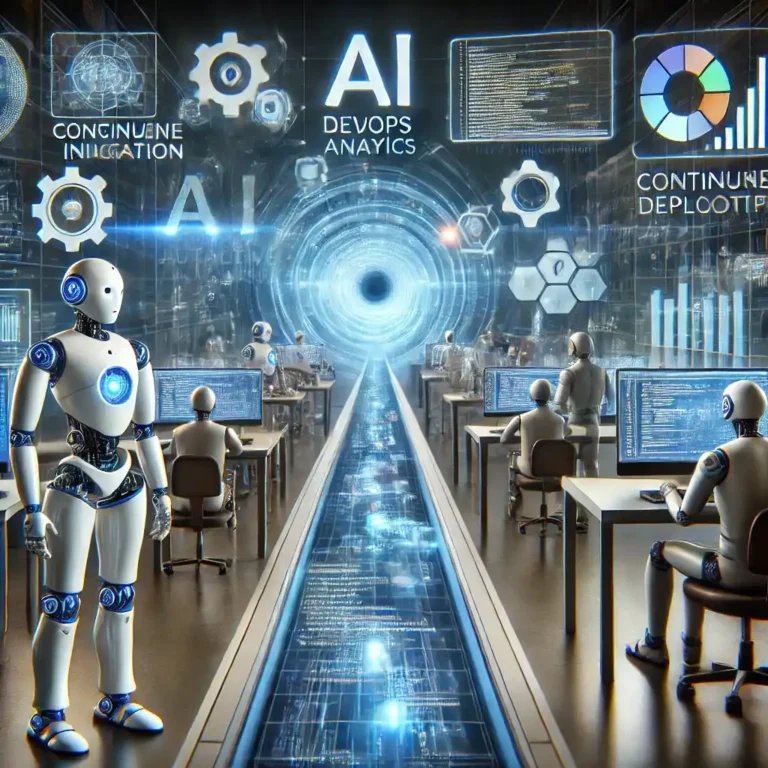AI Trends 2025: The Technology Transforming Industries and Everyday Life
As 2025 is approaching, artificial intelligence (AI) is evolving at a breakneck pace, transforming industries and redefining how we work, live, and innovate. From machine learning to ethical considerations, the AI landscape is assured to go through innovative changes.

1. Generative AI Across Industries
Generative AI tools like GPT-4, DALL·E, and MidJourney have already showcased their potential in creative fields. In 2025, generative AI will expand beyond content creation and art into industries like healthcare, finance, and manufacturing.
- AI will assist in generating synthetic medical data for research and creating treatment plans.
- Generative AI will automate report generation, fraud detection models, and personalized financial advice.
- AI will design prototypes, simulate product performance, and optimize production processes.
Example: AI-generated architectural designs will streamline urban planning and construction, saving time and resources.
2. AI-Driven Personalization Gets Smarter
In 2025, AI will redefine personalization by delivering hyper-targeted experiences across platforms. With advancements in deep learning and real-time data processing, AI will better understand user behavior and preferences.
- Improved personalized shopping experiences with AI-driven product recommendations.
- Adaptive learning platforms will tailor lesson plans to individual learning styles.
- AI will curate improved personalized content playlists, movies, and games.
Example: Streaming services will use AI to predict the moods of users and recommend content accordingly, enhancing viewer satisfaction.
3. Smarter Threat Detection
With increasing cyber threats, AI-powered cybersecurity will become a necessity in 2025. AI will identify, predict, and mitigate security breaches faster than ever before.
- Real-Time Monitoring: AI systems will analyze patterns to detect anomalies and prevent attacks.
- AI vs. AI: Cybercriminals are using AI for advanced attacks, and organizations will deploy AI to counter these threats.
- Zero Trust Security: AI will play a key role to implement zero-trust models to safeguard sensitive data.
AI algorithms will be able to predict ransomware attacks in advance, minimizing data loss and downtime. To know more about threat detection and defense automation, check out our detailed blog.
4. AI Agents and Autonomous Systems
AI agents: Autonomous systems that can perform tasks without the intervention of humans, will see widespread adoption in 2025. These systems will be able to handle complex decision-making processes.
- Customer Support: AI-powered virtual agents will provide human-like support 24/7.
- Logistics: Autonomous delivery systems and AI-powered drones will revolutionize last-mile delivery.
- Finance: AI agents will autonomously manage investments and optimize financial portfolios.
5. AI Ethics and Regulation
With the expansion of AI systems, ethical concerns surrounding their use will grow. Governments and organizations will have to prioritize AI regulations in 2025 to be fair, transparent, and accountable.
- Bias Mitigation: AI models will be trained to make unbiased decision-making.
- AI Audits: Regular checks and audits will ensure compliance with ethical guidelines.
- Global Collaboration: Countries will work together to create standardized policies related to AI.
Example: AI developers will focus on explainable AI (XAI) to make machine learning decisions more transparent, trustable, and understandable.
2025 will mark a significant leap forward for AI, with groundbreaking advancements across industries and an increasing focus on ethical implementation. From better personalization to autonomous systems, these trends will shape the future of technology and society. Staying ahead will be crucial for businesses, developers, and individuals alike.






